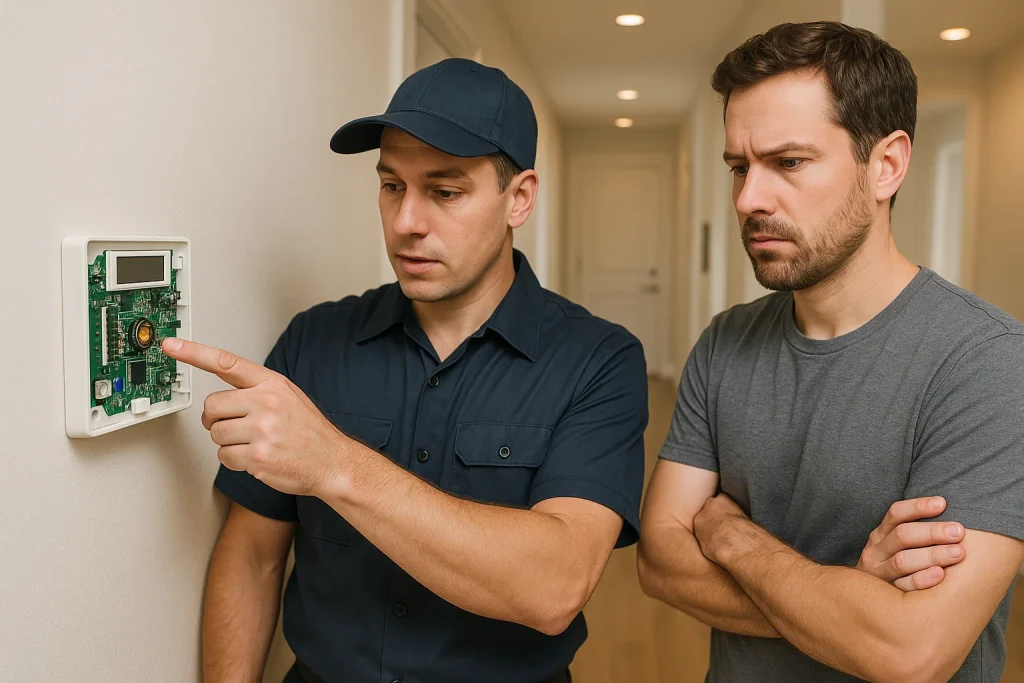A heat pump that refuses to switch from cooling to heating can leave home feeling unexpectedly chilly. Because heat pumps handle both heating and cooling, several components must work together to change modes smoothly. When one of these parts fails, the system may get stuck in cooling or produce only lukewarm air. At Premier, we specialize in diagnosing and repairing heat pumps in Warner Robins, GA, including one of the most common culprits—a malfunctioning reversing valve.

The Reversing Valve: The Heart of Heat Pump Operation
The reversing valve is what makes a heat pump different from a standard air conditioner. This valve changes the direction of the refrigerant flow, allowing the system to either absorb heat from outside to warm your home or release heat to cool it. When the reversing valve breaks, the refrigerant can no longer reverse direction, leaving your heat pump stuck in one mode.
Signs of a faulty valve include:
- The system cooling instead of heating
- No temperature change when switching modes
- A constant humming sound near the outdoor unit
- Ice buildup during heating attempts
A damaged reversing valve requires professional replacement, as it involves sealed refrigerant lines and complex components that should never be handled without proper certification.
Thermostat or Control Board Problems
Sometimes, your heat pump’s inability to switch to heating mode starts with the thermostat. Incorrect settings, software errors in smart thermostats, or faulty wiring can prevent the signal that triggers the mode change. In other cases, the issue lies in the control board, which acts as the communication hub for your entire system. Premier’s technicians can test your thermostat and control board to determine whether a simple calibration or component replacement will restore heating performance.
Low Refrigerant Levels
Refrigerant is vital to your heat pump’s heating cycle. When levels drop due to a leak, the system struggles to absorb or transfer heat efficiently. You may notice your heat pump running constantly without warming your home. Because refrigerant handling requires EPA certification, homeowners should never attempt to recharge or repair leaks themselves. A professional inspection ensures that leaks are repaired properly and refrigerant levels are restored to manufacturer specifications.
Electrical or Sensor Failures
If your heat pump doesn’t respond when switching modes, the problem could stem from an electrical component such as a relay, capacitor, or defrost sensor. These parts help control timing and performance during heating and cooling cycles. When they fail, your system may appear to be running but never produce warm air. Only a trained technician can safely test electrical components and replace them without risk of shock or further damage.
Outdoor Unit Problems
Because the outdoor unit is exposed to the elements year-round, dirt, debris, or ice buildup can interfere with the heat exchange process. Restricted airflow may cause your heat pump to overwork, overheat, or fail to switch modes properly. Routine maintenance—including cleaning coils and checking fan operation—prevents many of these issues and extends the life of your system.
From reversing valve replacement to electrical repair, Premier’s experienced HVAC technicians deliver expert solutions that restore comfort quickly and safely. Schedule professional heat pump service today and ensure your system is ready to keep your home warm through the season.

